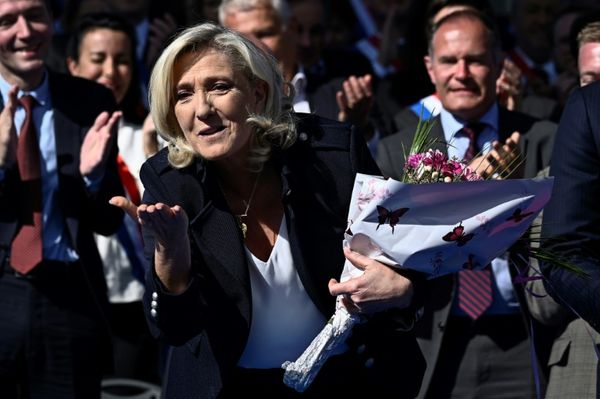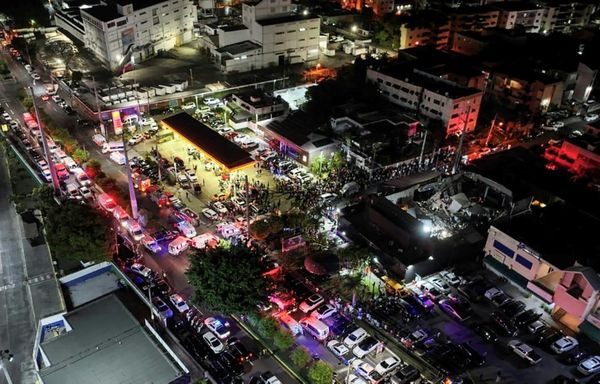If the Tamil Nadu government wants to make a paradigm shift in its prohibition policy by permitting the serving of liquor in stadia, conference halls and convention centres, why doesn’t it “boldly” amend the Tamil Nadu Prohibition Act, 1937 itself rather than just amending the statutory rules framed under the law, asked the Madras High Court on Friday, March 15, 2024.
Sitting along with Chief Justice Sanjay V. Gangapurwala, Justice D. Bharatha Chakravarthy posed the question during the hearing of two public interest litigation (PIL) petitions filed by K. Balu, of the Advocates Forum for Social Justice, who had challenged two Government Orders issued on March 18 and April 24 last year that introduced a special liquor licence regime.
Senior Counsel N.L. Rajah told the court that the government had come up with a third G.O. on Thursday (March 14, 2024) for the issuance of special licences to possess and serve liquor in stadia, conference halls and convention centres during national/international events, and that his client intended to challenge the latest G.O. too, by filing a separate PIL petition.
Also Read | 84 years since Tamil Nadu Prohibition Act of 1937, but prohibition is not yet a reality, laments Madras HC
Mr. Rajah told the court that all three G.O.s had attempted to introduce the special licence regime by amending the Tamil Nadu Liquor (Licence and Permit) Rules, 1981 though Section 4A of the Prohibition Act clearly states that a person found in a state of intoxication in any public place could be imprisoned for up to three months or imposed with a fine of ₹1,000.
He further said, the 1937 Act permits the manufacture, possession and sale of liquor under strict conditions. In 2003, the State government abolished the interference of private parties in the liquor business and gave exclusive privilege of both wholesale as well as retails sales to the Tamil Nadu State Marketing Corporation (Tasmac), a government undertaking, by amending the Act.
Therefore, as the law stands today, only Tasmac can be in possession of liquor at any point of time and such a right could not be given to organisers of national/international events through the backdoor method of amending the statutory rules alone without touching either Section 4A or any other provision of the Act, Mr. Rajah argued.
He also said, the State government would have to place the latest G.O. too, before the Legislative Assembly since the two other G.O.s passed last year were tabled in the Assembly at the instance of the first Division Bench. After hearing him at length, the judges granted him time till March 20 to file one more PIL petition challenging the new G.O.
During the course of the hearing, the Chief Justice told Advocate General P.S. Raman, “His [Mr. Rajah] contention is that you should first amend the Section (4A) and then permit everything. The moment you amend the Section, it will be a pill for all ills.”
Justice Chakravarthy said all along, the Tamil Nadu government had been following a policy of not allowing liquor during sports, cultural and such other events organised in stadia, convention centres and convention halls. However, now there appeared to be a paradigm shift in this policy by allowing the consumption of liquor in these places. “It appears that we are trying to shift to the western way. We want to openly participate in events with a glass in front... Take a decision very boldly by amending the Act if you want to bolster liquor, not through these backdoor methods,” the judge said, and added that he feared that the special licence regime could be misused by individuals and organisations.
“For example, tomorrow, an association or even a newly formed political party can conduct a conference in a 15-acre enclosed space in which it can serve liquor freely by obtaining a special licence,” the judge said. However, the A-G told the judge that this could not happen because the licence would be given only for national or international events.
“That is a very nebulous concept. Even if two delegates come from Singapore or Malaysia, it will be claimed as an international event. Today, if any person addresses an event virtually also, it is claimed to be an international event. So, the organisers will say, it is an international event and therefore give me licence to serve liquor,” the judge cautioned.
Later, leaving it to the State government to think about these issues before taking a proper decision in the matter, the Bench adjourned the hearing on the two PIL petitions to Tuesday (March 20, 2024) since Mr. Rajah requested time to file a third petition.
The latest G.O. lays down the procedures to be followed to obtain a special licence to possess and serve liquor during national/international events in stadia, conference halls and convention centres, except those situated on the campus of an educational institution, and the conditions that would be imposed on the licencees.
The conditions state that liquor should be served only within a designated place to be screened off from public view and that it should not be served to any person below the age of 21 years. The conditions also state that a squad would be deployed to monitor the implementation of the conditions in large conferences. In case of violation of the conditions, the licencee’s security deposit would be forfeited in whole or in part, and the licence could also be cancelled.







